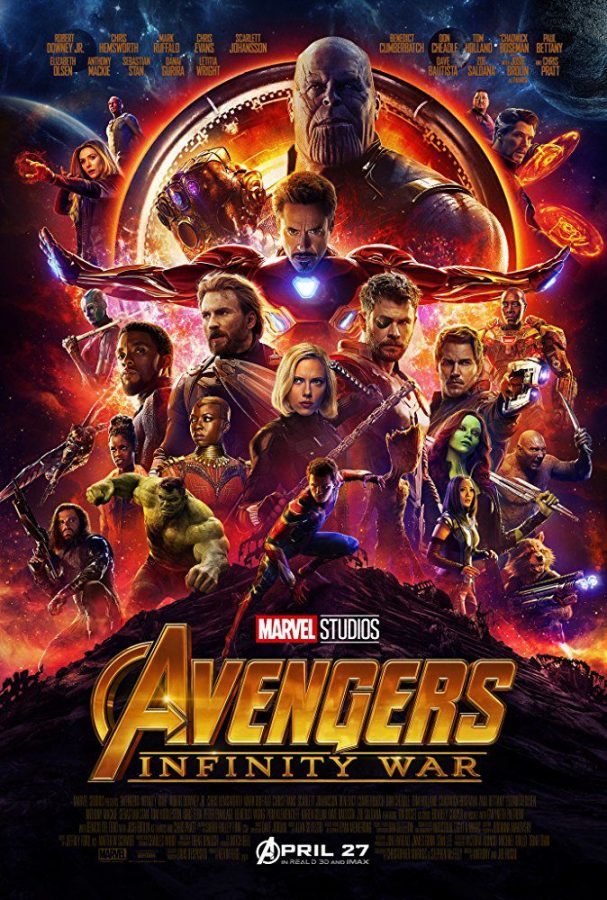‘Infinity War’ casts doubt on the future of cinema
‘Infinity War’ casts doubt on the future of cinema
May 7, 2018
The Marvel Cinematic Universe officially started with “Iron Man“ in 2008. Since that time, films in this extended universe reached great heights—like “Thor: Ragnarok,“ “Black Panther“and “Iron Man”—and hit some pretty low lows: “Thor: Dark World,“ “Iron Man” and “Captain America: Civil War“.
However, for the past 10 plus years, the goal has always been to build a world strong enough, exciting enough and intense enough wherein every hero in the MCU can stand together in arguably the biggest crossover event ever put to film. April 27, after 10 years of anticipation, “Avengers: Infinity War“ premiered.
“Infinity War“ delivers on the action, mountainous moments and heartbreaking emotion that Marvel Studios has promised since it began its experiment into serialized cinema. Directors Joe and Anthony Russo handle Christopher Markus and Stephen Mcfeely’s script with care and despite the multiple storylines, did not push any characters into the background.
This new addition in the “Avengers“ saga is well–acted, shot well and surprisingly features a memorable and impactful score from composer Alan Silvestri. Marvel films are notorious for forgettable music, and with the exception of “Thor: Ragnarok,” this may be the best composed MCU film so far.
While it may feel overstuffed at times, even with a two–hour and 40-minute run time, there isn’t a director alive who could make this film without it feeling a little overstuffed, and herein lies the problem.
Cinema is not television. To go and watch a movie is to be introduced to a world, its characters and their problems. “Infinity War“ rests on the laurels of its predecessor films. To truly understand the film, audiences will at minimum have to see “Thor: Ragnarok,“ “Captain America: Civil War,“ “Black Panther,“ “Guardians of the Galaxy“—volumes one and two—”Avengers: Age of Ultron,” “Spiderman: Homecoming” and “Doctor Strange.” Otherwise, the conflicts presented in “Infinity War” will fall flat. Thor’s main conflict comes from “Thor: Ragnarok.” The tension between Steve Rogers and Tony Stark comes from the events of “Civil War.” The audience’s understanding of Wakanda comes from “Black Panther.“ The father and son dynamic between Tony Stark and Peter Parker comes from “Spiderman: Homecoming.“
Each infinity stone is introduced in a separate film before “Infinity War” except for the soul stone. However, I expect the soul stone to be explored in the upcoming “Ant-Man” sequel. Other than the intense action sequences, it feels as if everything in “Infinity War“ was predetermined.
“Infinity War“ is a two-and-a-half-hour television series finale. When a film decides to rest on the laurels of previous entries in its catalog, introducing just enough of a storyline to merit another billion dollar movie being made, then it cheapens the story. It’s exciting, brilliantly–acted, pulse-pounding excitement, but to me, it is not cinema. It is money-making entertainment of the highest form. “Infinity War“ doesn’t even vaguely attempt to answer half as many questions as it asked because the producers are more worried about making another billion dollars in the 2019 fourth and last “Avengers” film instead of telling a complete story.
I understand this. I would do the same thing if someone gave me a billion dollars every time I put a piece of a puzzle together. What worries me is what happens when the audience stops paying to see the next piece of the puzzle. Will Marvel finish it, and if they do, will it be worth watching at as a whole?








